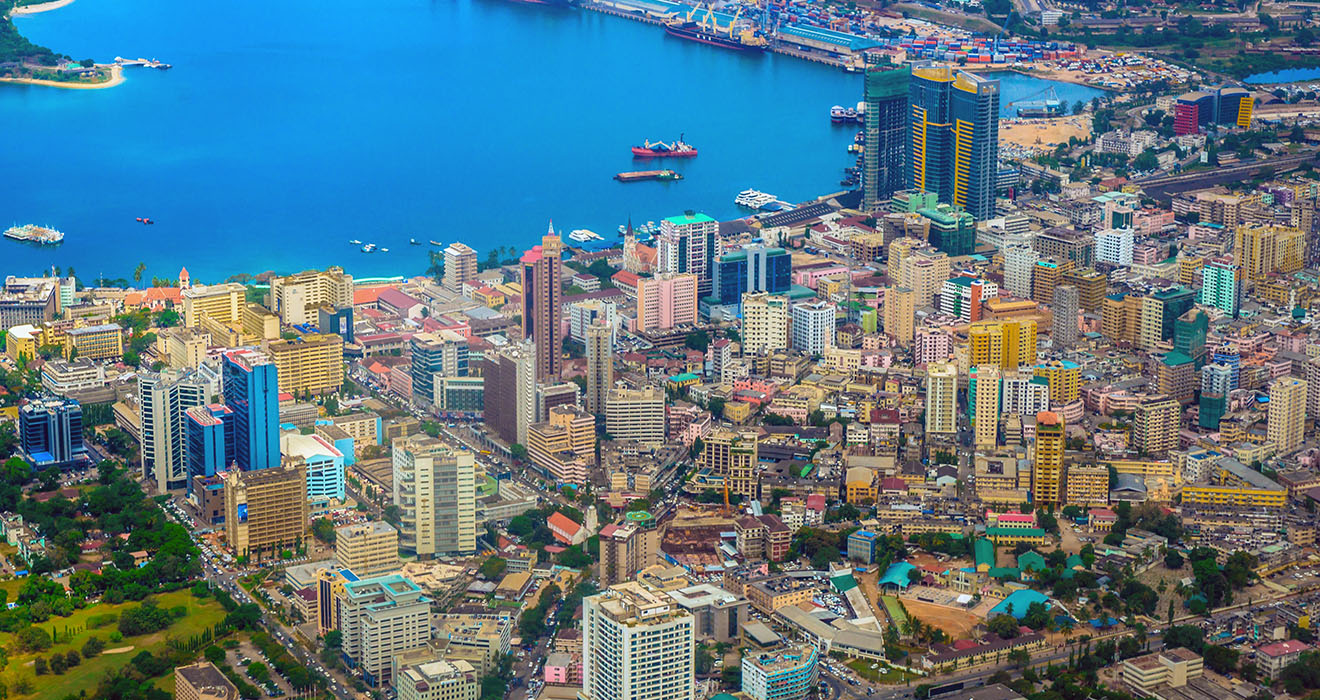Dar Es Salaam
The Gateway to Tanzania's Coast
About Dar Es Salaam
Dar es Salaam, the largest city in Tanzania, is a vibrant and bustling metropolis located on the country's eastern coast. It serves as the main port and commercial center, offering a blend of rich history, diverse cultures, and stunning coastal landscapes.

Photo by Peter Mitchell on Unsplash
Getting There and Around
Arrival
Airports: Julius Nyerere International Airport is the main airport serving Dar es Salaam, offering domestic and international flights.
Train Stations: Dar es Salaam Central Railway Station provides train services to various destinations within Tanzania.
Bus Terminals: Ubungo Bus Terminal is the primary hub for long-distance bus travel within Tanzania.
Transportation
Public Transport Options: The city has a network of buses and minibusses for public transportation, providing affordable options for getting around.
Car Rentals: Car rental services are available from several companies for those who prefer to explore the city independently.
Bike Shares: Bike-sharing programs are not widely available in Dar es Salaam.
Tips: It's advisable to use reputable taxi services or ride-hailing apps for convenient and safe transportation.
Accommodations
Overview: Dar es Salaam offers a range of accommodations, including luxury hotels, budget-friendly guesthouses, and beachfront resorts.
Types of Accommodations: Visitors can choose from hotels, lodges, guesthouses, and serviced apartments based on their preferences and budget.
Booking Tips: Advance booking is recommended, especially during peak tourist seasons, to secure preferred accommodations.
Local Regulations and Safety: Travelers should adhere to local regulations and safety guidelines, particularly when staying in beachfront areas.
Accessibility: Many accommodations offer accessible facilities for guests with mobility needs.
Masaki
Known for its upscale hotels, restaurants, and proximity to the coastline.
Kariakoo
A bustling area with a variety of budget-friendly accommodations and local markets.
Mikocheni
Popular for its residential feel, offering a mix of guesthouses and apartments.
City Center
Convenient location with a range of hotels catering to business and leisure travelers.
Msasani Peninsula
Home to luxury resorts and beachfront properties, ideal for a relaxing stay.
Attractions and Activities
Askari Monument
A historical landmark commemorating soldiers who fought in World War I.
Village Museum
Showcases traditional Tanzanian homes and cultural heritage.
Kivukoni Fish Market
A bustling market offering a glimpse into the local fishing industry.
National Museum and House of Culture
Features exhibits on Tanzania's history, art, and archaeology.
Coco Beach
A popular beach destination with vibrant nightlife and water sports activities.
Dining and Nightlife
Culinary Scene
Dar es Salaam boasts a diverse culinary scene, featuring a fusion of Swahili, Indian, and international flavors.
Msasani Peninsula
Home to upscale restaurants offering seafood, international cuisine, and ocean views.
City Center
A hub for dining with a mix of local eateries, cafes, and international dining options.
Oyster Bay
Known for its trendy cafes, bistros, and fine dining establishments.
Kariakoo
Offers authentic street food stalls and local eateries serving traditional Tanzanian dishes.
Mikocheni
A neighborhood with a variety of dining choices, from casual eateries to family-owned restaurants.
Festivals and Events
Sauti za Busara
An annual music festival celebrating African music and cultural diversity.
Dar es Salaam International Trade Fair
Showcases products and innovations from local and international businesses.
Karibu-Kilifair
A leading tourism and industry fair promoting travel and hospitality in East Africa.
Mwaka Kogwa Festival
A traditional Zanzibari event featuring music, dance, and competitive games.
Bagamoyo Arts Festival
Celebrates arts, culture, and heritage through performances, workshops, and exhibitions.
Practical Information
Safety Tips
Travelers should be cautious of petty theft and remain vigilant in crowded areas. It's advisable to use reputable transportation services and avoid walking alone at night.
Healthcare
Pharmacies: Pharmacies are readily available throughout the city, offering a range of medications and healthcare products.
Hospitals: Dar es Salaam has several hospitals and medical centers providing emergency and specialized healthcare services.
Emergency Services: In case of emergencies, dial 112 for ambulance services and seek assistance from local authorities or medical facilities.
Currency and Payment
Local Currency: The official currency is the Tanzanian Shilling (TZS). Foreign currency exchange services are available at banks and authorized exchange bureaus.
Tipping Customs: Tipping is appreciated in restaurants and for exceptional service, typically around 10% of the bill.
Payment Methods Accepted: Major credit cards are accepted at upscale establishments, while cash is commonly used for smaller transactions.
Connectivity
Mobile Networks: Local mobile networks provide reliable coverage, and SIM cards can be purchased for use with unlocked phones.
SIM Cards: Visitors can easily obtain prepaid SIM cards from various providers to stay connected during their stay.
WiFi: Many hotels, restaurants, and cafes offer WiFi connectivity for patrons, and internet cafes are also available for access.
Local Customs and Etiquette
Culture Insights
Tanzanian culture values respect, hospitality, and communal harmony. Visitors are encouraged to engage with locals and embrace cultural traditions.
Greetings
Common greetings include 'Jambo' (Hello) and 'Karibu' (Welcome), reflecting the warm and friendly nature of Tanzanian hospitality.
Social Behavior
Tanzanians appreciate polite and courteous behavior, and it's customary to engage in small talk and show interest in others' well-being.
Cultural Taboos
Respect for elders and traditional customs is important, and it's advisable to avoid sensitive topics related to religion, politics, and personal beliefs.